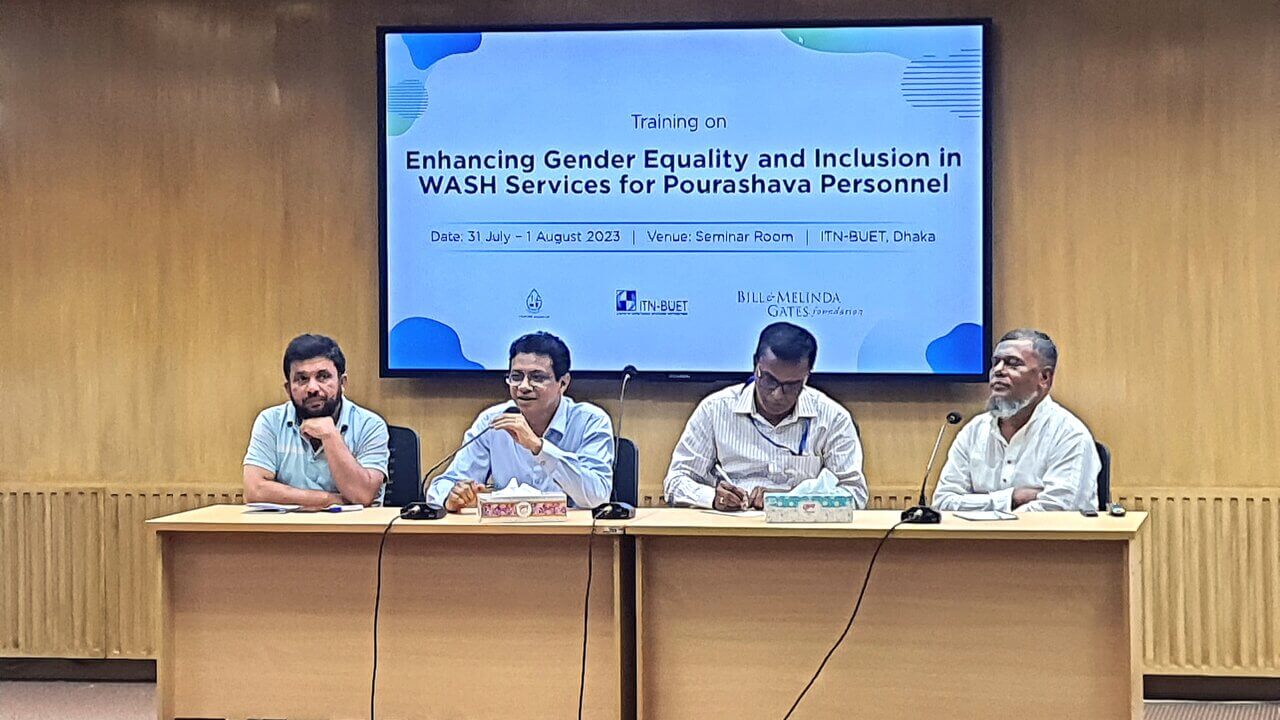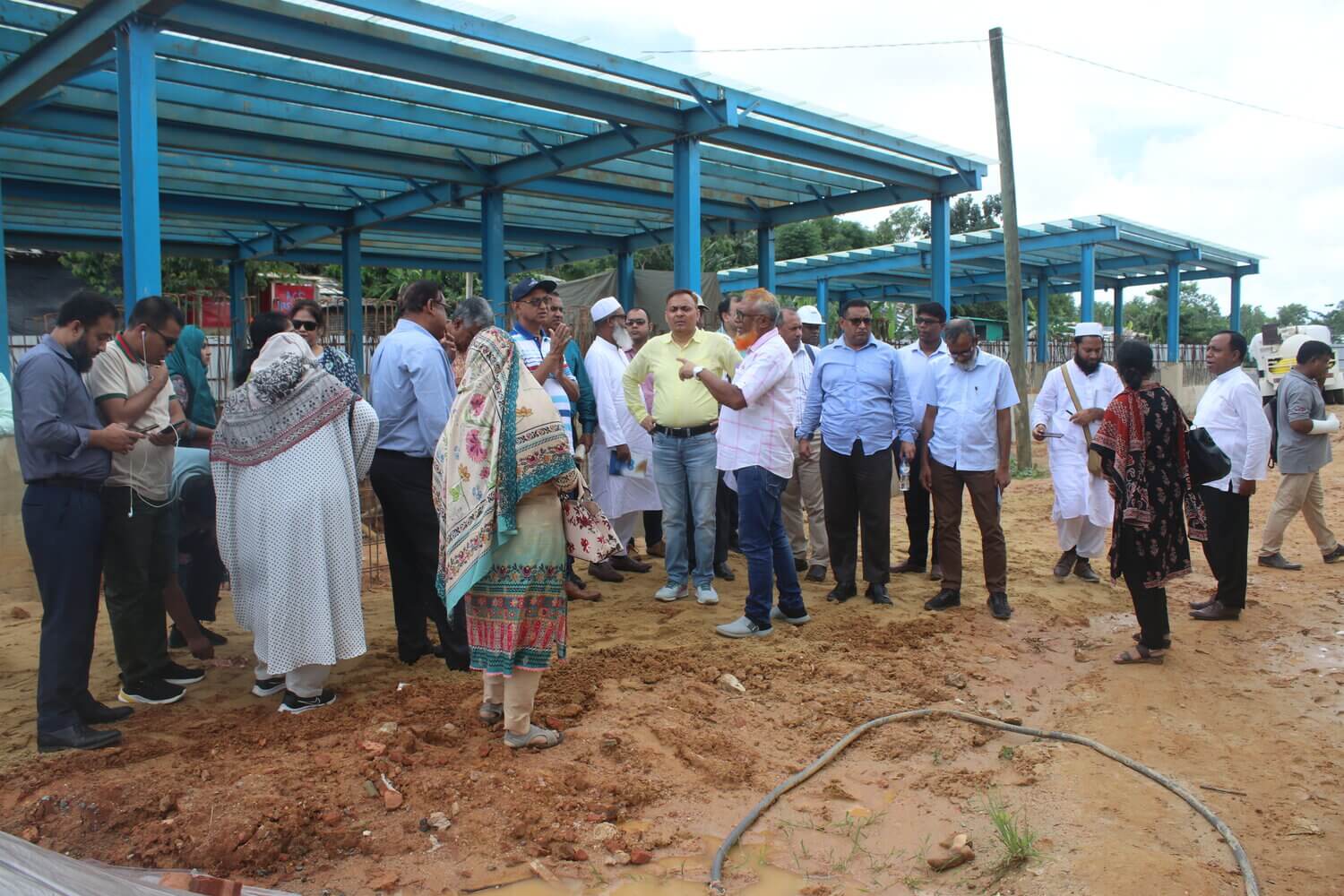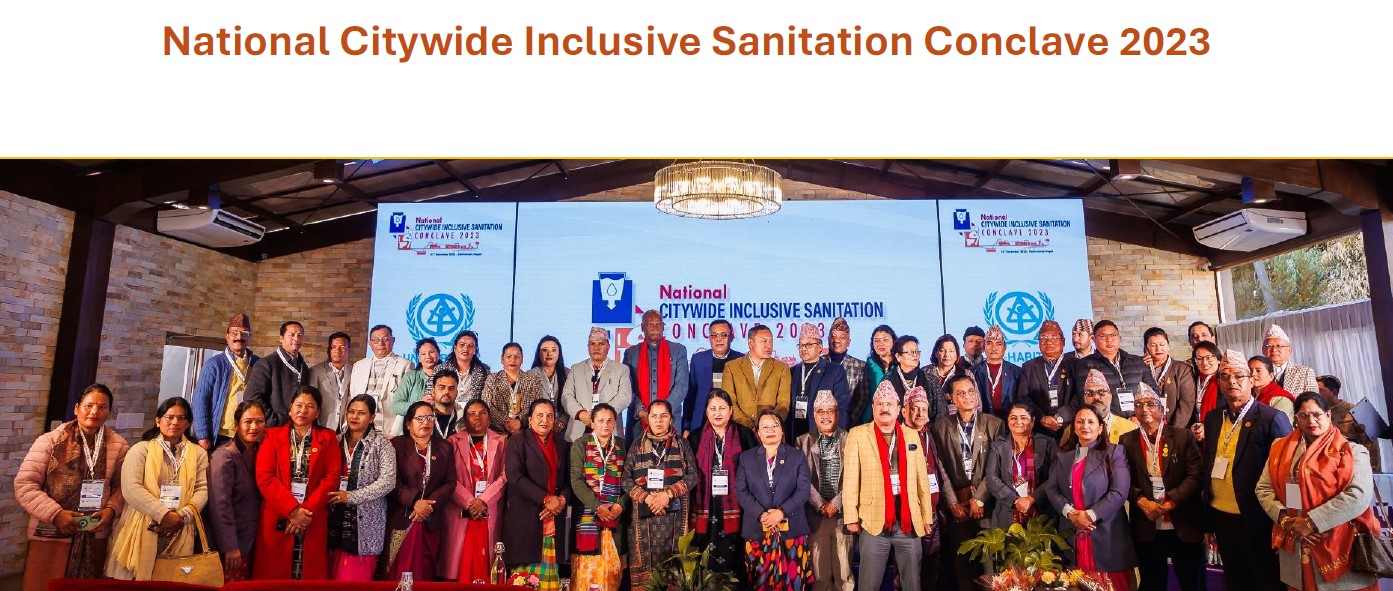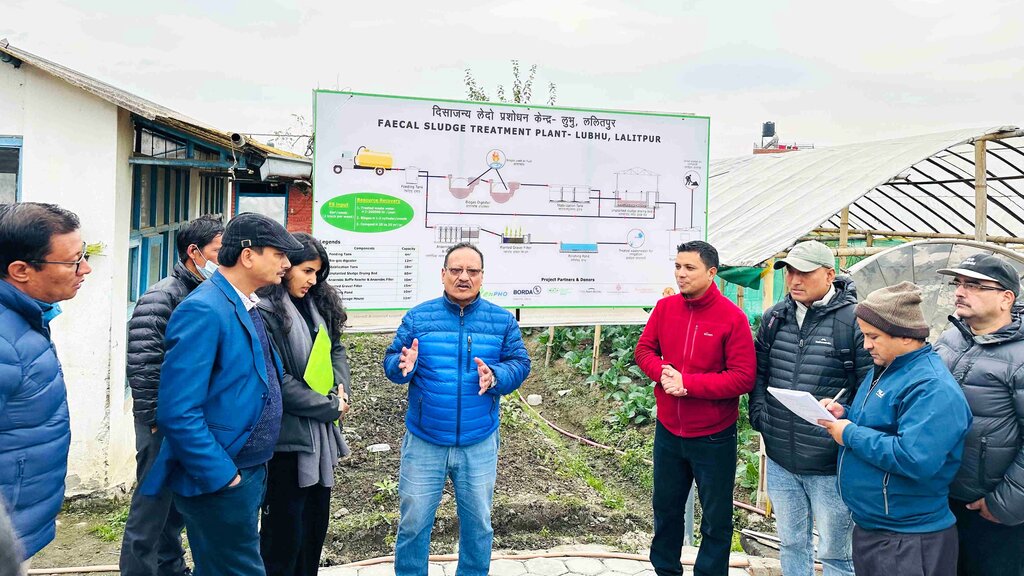DHPE officials are capacitated on Fecal Sludge and Solid Waste Management
27 July, 2023
The increase in population density and material consumption is making urban waste management increasingly complex and highly challenging. Amidst this context, addressing the needs of water, sanitation and hygiene of Forcefully Displaced Myanmar Nationals (FDMN) has been a priority for the Department of Public Health Engineering (DPHE) under the Emergency Multi-Sector Rohingya Crisis Response Project. To equip the esteem officials of DPHE with the necessary expertise, DPHE and ITN-BUET jointly organized a four-day comprehensive training program on Fecal sludge and Solid waste management from July 24th to 27th, 2023, at Hotel Sea Crown in Cox’s Bazar. Total 22 DPHE officials (four female Engineers), including Project Directors, Superintendent Engineers, Executive Engineers, and Assistant Engineers from various cities participated the training program.
The training program was inaugurated by Mr. Tushar Mohon Shadhu Khan, Additional Chief Engineer (Planning), who highlighted fecal sludge and solid waste management in Bangladesh as future challenge for DPHE. He motivated all participants to utilize the knowledge acquired from the training to implement safe and sustainable waste management practices. The training sessions were skillfully conducted by Master Trainers and sector specialists from different institutions including Dr. Mohammad Ashraf Ali, Professor, BUET; Dr. Tanvir Ahmed, Professor, BUET and Director of ITN-BUET; Dr. Abdullah Al-Muyeed, Chief operating officer, CWIS-FSM support cell; Dr. Imran Kabir, Professor, SUST, Md. Azizur Rahman, Assistant Director, ITN-BUET and Mr. Mohammad Ali, WASH officer, UNICEF.
During the first three days, the participants underwent orientation on various topics related to fecal sludge and solid waste management. The sessions included planning and designing, operation and maintenance, health and safety considerations, treatment technologies, community engagement strategies, and sustainable business models. The training aimed to encompass not just technical aspects but also placed significant emphasis on social, environmental, and inclusive perspectives. The fourth day of the training focused on practical knowledge, with an exposure visit to Fecal Sludge Treatment at Camp 2W and 12, Solid Waste Treatment Plant at Camp 15, and the Omni Processor at Camp 4 Extension. Experts from IWM, Ankur Scientific Energy Technologies Ltd, and ITN-BUET explained the working mechanisms and operational procedures of these treatment plants.
Professor Dr. Tanvir Ahmed, the Director of ITN-BUET, emphasized the current challenges and solutions of integrated waste management including fecal and solid waste management in Bangladesh and urged all participants to commit to the safe and sustainable disposal of waste, stressing its vital importance to public health.
Ms. Dilruba Farzana, Executive Engineer, DPHE appreciated the training’s holistic approach, addressing the technical aspects, social and environmental dimensions along with the exposure visit. Mr. Sumon Roy, Executive Engineer, DPHE opined that the course was effective for them to reduce the current knowledge gap on fecal sludge and solid waste management issues.
In the closing remarks, Mr. Mohammad Abdul Kaium, Project Director, EMCRP expressed gratitude to ITN-BUET for crafting a comprehensive and impactful training module. He emphasized the significance of the knowledge and skills acquired by the participants, stressing their potential in shaping future efforts concerning national-level fecal sludge and solid waste management.





No comment yet.